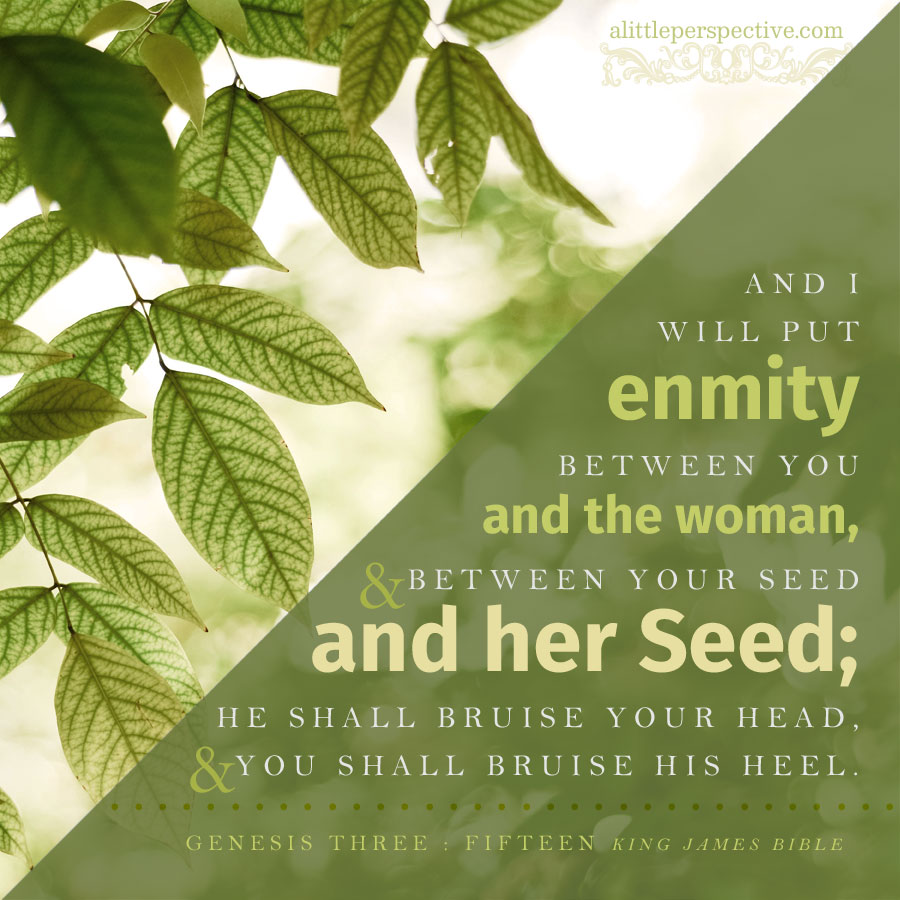Read Genesis 49:16-18 at Bible Gateway.
Hebrew paragraph division
Gen 49:16-18 {s} Dan’s blessing
16 Dan shall judge his people as one of the tribes of Israel. 17 Dan shall be a serpent in the way, a viper in the path, that bites the horse’s heels, so that his rider shall fall backward. 18 I wait for Your salvation, O Yehovah. {s} Gen 49:16-18
My original source for the Hebrew paragraph divisions, Restoration of Torah’s parashat hashavuah study series, lists a weak paragraph division {s} following verse 17, leaving verse 18 as its own paragraph. However, the Biblia Hebraica, the Hebrew Bible in English, and the Chumash all agree that there is not a paragraph division of any kind at the end of verse 17. The HBE and Chumash list the next division at the end of 18, and the Biblia Hebraica lists the next division at the end of 19 (the Biblia Hebraica does differ from the HBE from time to time.) I have taken the agreement of the HBE and the Chumash as authoritative and have corrected the division in my notes, which the above reflects.
Notice as we go through this chapter, that the meaning of each son’s name is repeated in the blessing, which gives us a clue as to the prophecy Jacob is making over each tribe.
Original Hebrew
Dan means, “judge.” The first occurrence of the name is:
Then she gave him Bilhah her maid as wife, and Jacob went in to her. And Bilhah conceived and bore Jacob a son. Then Rachel said, “God has judged my case; and He has also heard my voice and given me a son.” Therefore she called his name Dan.[a] Gen 30:4-6
And the footnote in my Bible says, a. Literally Judge.
Dan is Strong’s H1835, Dan, a proper name, from Strong’s H1777, diyn, a primitive root meaning “to rule, to regulate, to judge.” The ancient pictographs are dalet + yud + nun:
dalet = the door, thus enter, move, hang
yud = the closed hand, thus work, throw, worship
nun = the seed, thus continue, heir, son
In the days of Patriarchs, the father or eldest son of the tribe, the one who received the birthright and blessing of the father, would sit in the door of his tent, and the sons of the tribe would come to him with their disputes, and he would render judgment between them, which was binding. Even in later days you read of the elders sitting in the gate – the entrance – of the city, where the same function of dispensing wisdom, and of rendering decisions, was carried out (see Est 2:21, 3:3).
Some weeks back I had written:
There are two pictographs of hands in the ancient Hebrew alephbet. The yud is the closed fist, and carries the meaning of working or even fighting. The kaph is the open palm, and carries the meaning of blessing. When a father pronounced his blessing over his firstborn, he laid his open palm on his son’s head. Also when one man extends courtesy, hospitality, or friendship to another, he extends his open hand to him, not his closed fist. When one man gives another man anything he opens his hand to release the item from his possession. Interestingly enough, godly authority is defined in blessing and giving to (providing for) those under him; and God ordained among men to bless and protect those under him. In a way you might see the closed fist as man’s way of governing, by lording it over, oppressive coercion, and the open palm as God’s way of governing, by serving rather than being served.
And now we see another facet of the difference between the closed fist (yud) and the open palm (kaph). The closed fist carries the meaning of judgment, the open palm the meaning of mercy.
So the story the ancient pictographs are telling is of the door (dalet) where the hand was closed (yud) to the son (nun); i.e. rendering judgment.
Salvation is Strong’s H3444, yeshuwah, an abstract concept meaning “salvation,” from Strong’s H3467, yasha, a primitive root meaning “to save.” The ancient Hebrew pictographs are yud + shin + ayin:
yud = the closed hand, thus work, throw, worship
shin = two front teeth, thus sharp, press, eat, two, again
ayin = the eye, thus watch, know, shade
The story the ancient pictographs are telling is of actively (yud) sharply, diligently (shin) watching out (ayin) for danger. We have carried over this same understanding in English from the Hebrew mother tongue, when we say, “Look sharp!” to mean, Look carefully without letting anything escape your notice. The concrete noun in between the verb form “to save” and the abstract concept of “salvation,” is “shepherd,” one who rescues his flock.
The shepherd carefully watches over the flock and the surrounding area always on the lookout for danger. When a predator comes to attack, the shepherd destroys the enemy. – Ancient Hebrew Lexicon
Chiastic structure
1a) Gen 49:16 Dan shall judge his people as one of the tribes of Israel; (RULER)
1b) Gen 49:17a Dan shall be a serpent in the way, a viper in the path, that shall bite the horse’s heels;
2b) Gen 49:17b So that his rider shall fall backward;
2a) Gen 49:18 {s} I wait for Your salvation, O Yehovah. (SHEPHERD).
The picture is of a serpent biting the heel.
“And I will put enmity between you and the woman, and between your seed and her Seed; He shall bruise your head, and you shall bruise His heel.” Gen 3:15
The Hebrew word for “fall” is the same root as the name Nephilim, meaning, “fallen ones.” But I am not wise enough to understand the meaning of the prophecy over Dan. ♥

















Leave a Reply